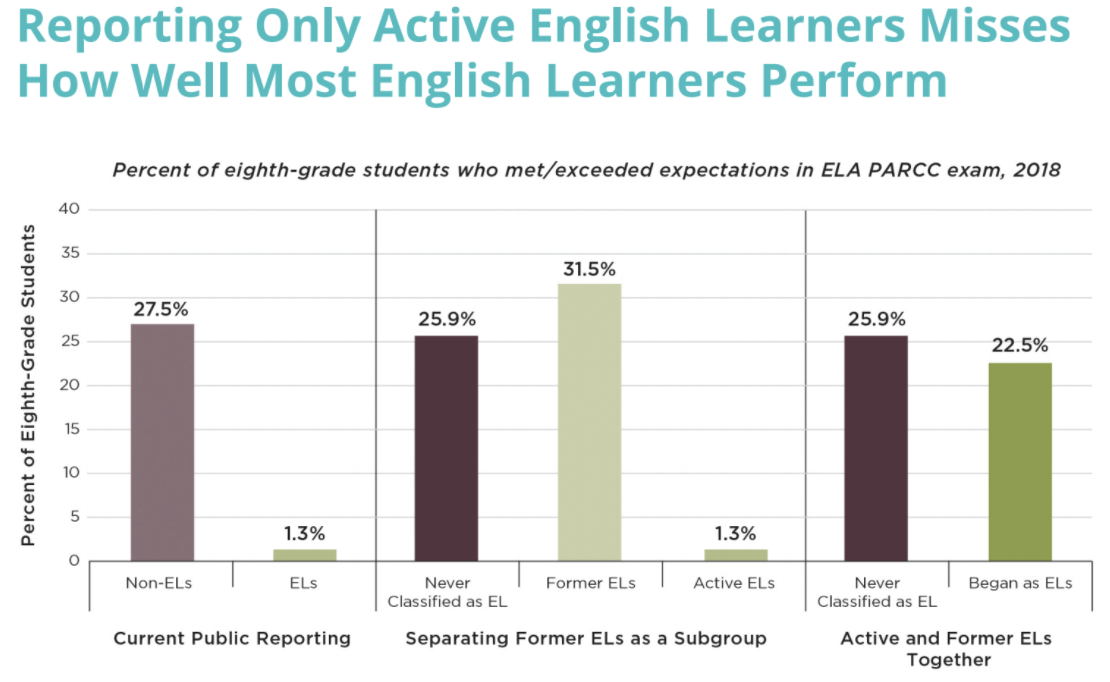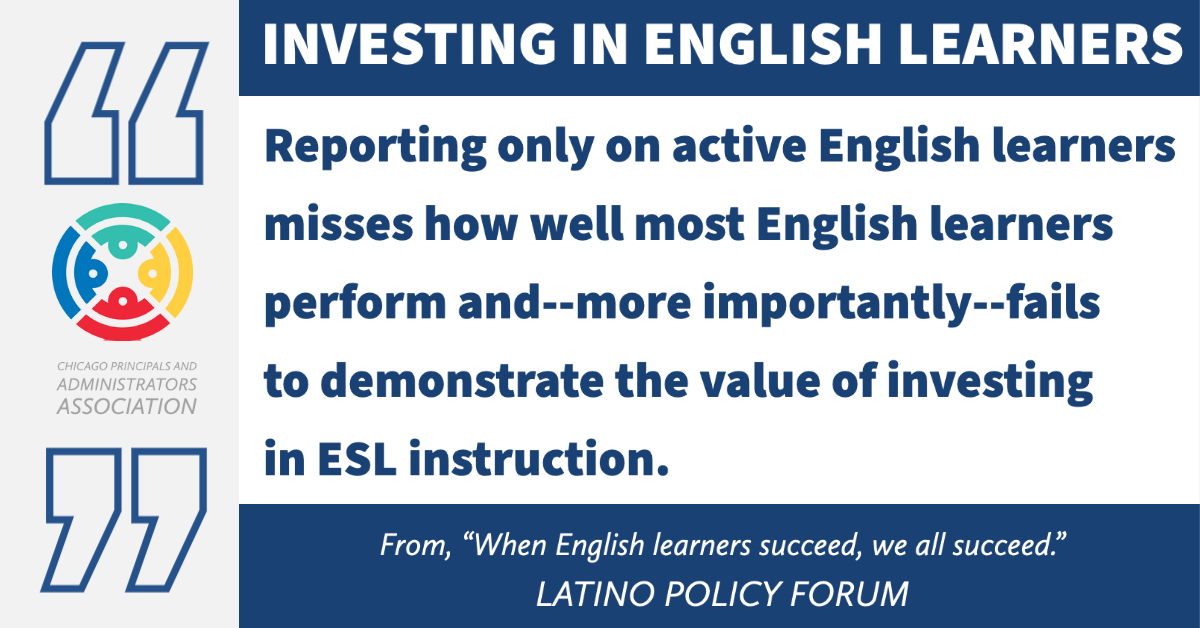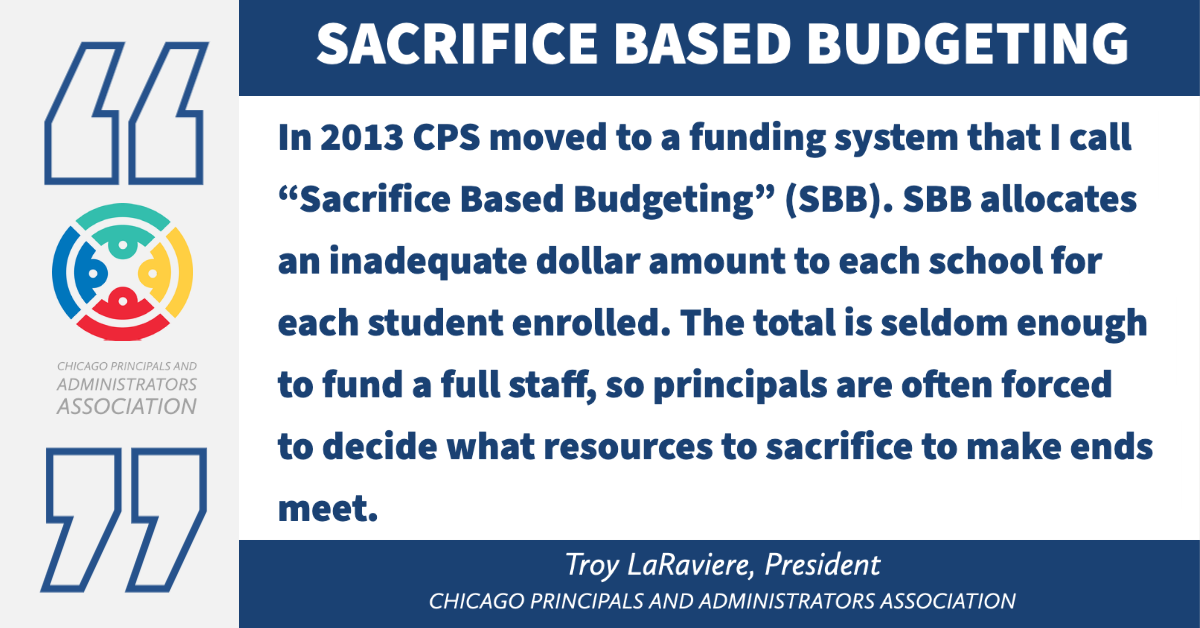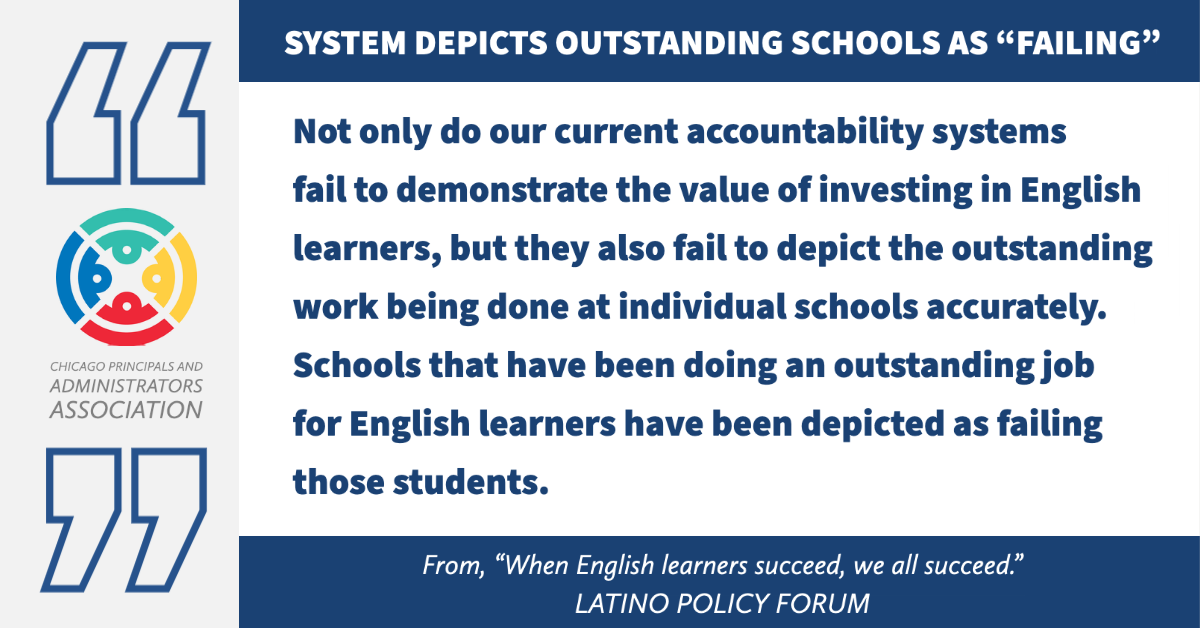The Latino Policy Forum is a multifaceted organization and they conduct research to determine which public policies have the greatest impact on Latinos' well-being and society's well-being in general. Then they get people involved in improving policies at all levels of public decision-making. (For more info about the Latino Policy Forum, click HERE.)
The Forum recently highlighted data from a study conducted by the University of Chicago Consortium on School Research. The key finding of that research contradicts the dominant misleading narrative about English Language Learners. Since today’s accountability systems only focus on active English learners' test scores, they fail to track those students after they become proficient in English while also failing to track achievement metrics other than test scores. After retroactively tracking more than 18,000 English learners from kindergarten through eighth grade, the researchers found that English learners have similar achievement and growth and go on to have better attendance and grades in core subject areas than native English speakers.
The key takeaway here is that investing in English learners works. However, reporting only on active English learners misses how well most English learners perform and--more importantly--fails to demonstrate the value of investing in instruction for English learners.

The chart displayed above depicts three different ways that English Learner performance data can be communicated. In the first column, ELs consists only of students who are actively receiving services, which is how data has historically been reported. The second column includes the performance of students who began as English Learners but reached English proficiency by eighth grade. The final column aggregates the data between active and former English Learners into one subgroup, which lessens the perceived differences in achievement.

One Principal's Perspective
I was principal at Blaine Elementary School from 2011 to 2016, where the percentage of Black students meeting reading standards rose from 28% to 75%, and the Hispanic percentage rose from 73% to 83% between 2011 and 2013. Overall achievement rose from 79% to 89% in that same time period. In 2013 CPS moved to a funding system that I call Sacrifice Based Budgeting (SBB). SBB allocates an inadequate dollar amount to each school for each student enrolled. The total is seldom enough to fund a full staff, so principals are often forced to decide what resources to sacrifice to make ends meet.

That year, Chicago Public Schools officials allocated an immorally low amount of about $5,000 in total to support Blaine's English Language Learners. CPS did the same thing to scores of schools across the district, forcing principals to either forego needed staffing resources for English learners or sacrifice something else to hire the staff needed by their English learners. I decided to move approximately $52,000 from another priority to pay for a half-time bilingual teacher. The teacher’s name was Erin Moloney. She was a brilliant educator whose work undoubtedly improved the knowledge, skillset, and socio-emotional development of our students who had not yet become proficient in English. What I saw in Mrs. Moloney’s work is echoed by the Consortium's research: that investing in school-level bilingual teachers for English Langauge Learners has a tremendous payoff, and it should be a requirement for any school district, rather than an option that requires a principal to sacrifice a different student need to meet the needs of English learners.
Misrepresenting School Quality
The report does not directly make this claim, but its findings clearly indicate that schools have been unfairly maligned regarding their effectiveness with English learners. Not only do our accountability systems fail to demonstrate the value of investing in English learners, but they also fail to accurately depict the outstanding work being done at individual schools. By solely focusing on active English Learners, accountability systems have unfairly depicted student performance in schools with large numbers of English learners. In essence, schools that have been doing an outstanding job for ELs have been depicted as failing those students. This must end.

Other findings from the research are below.
Students who began as ELs and demonstrated English proficiency by eighth grade had higher attendance, math test scores, and core course grades than their peers who were never classified as ELs; reading test scores and Freshman OnTrack rates were similar.
About one-fifth of students who began kindergarten as ELs did not reach English proficiency by the end of eighth grade. This group of students was more likely to be male, much more likely to be identified as needing special education services. In first grade, they had significantly lower scores on the state English proficiency exam (ACCESS).
ELs who did not achieve English proficiency by eighth grade also struggled with declining attendance by the middle grades, considerably lower grade point averages, and lower Freshman OnTrack rates. Future research could develop a method of identifying this group of students early on so that educators could design and implement more effective supports.
Click either of the links below for more information on the Latino Policy Institute and the Consortium's research findings on English learners.

